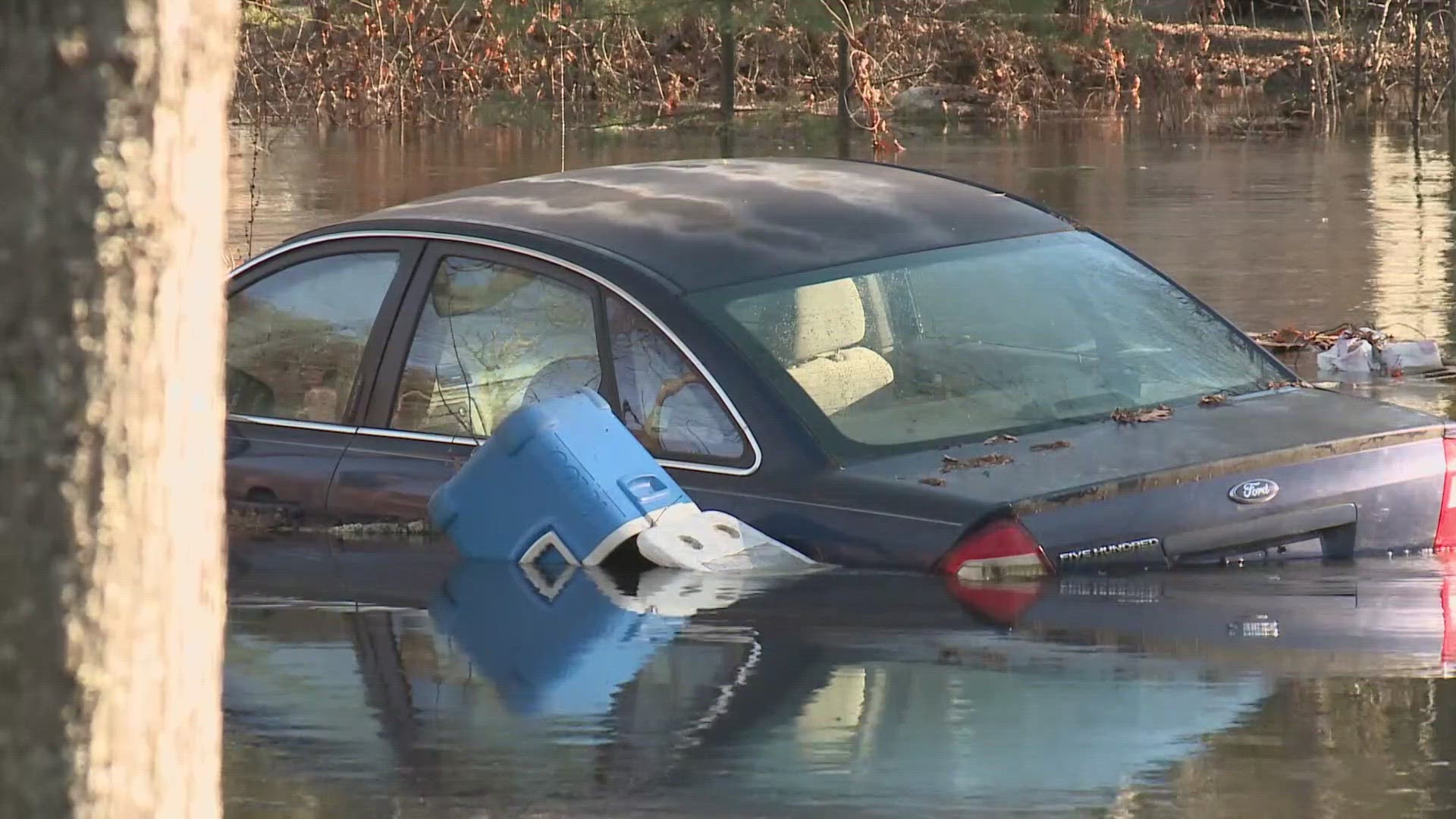AUBURN, Maine — Barry Morrill runs Childs Linen Service, a small business in Auburn that provides rented dining table clothes, napkins, and presses hotel sheets and linens.
During the storm before Christmas, Morrill arrived at his business to see two feet of water seeping into the industrial-grade washers, dryers, and pressers.
"Every single one of them, just below the barrel right here," Morrill said, pointing to the water line against his washing machines.
Normally, the washing machines are silent, but due to the water seeping into the electronics, they are running loud. Parts will need to be replaced and it could cost his small business thousands of dollars.
The true damage may come from the iron press that every piece of fabric goes through to be pressed and packaged. Morrill said the damage there is still undetermined, and if he can't get it running, it would drive his costs to hundreds of thousands of dollars.
And despite living across the street from the Androscoggin River, Morrill said he was not required to have flood insurance, adding the river has only flooded that high once before in the company's 50-year history.
Morrill is not alone either, according to Champoux Insurance in Lewiston. Many people do not have flood insurance, as it's usually only required if you live in a flood zone.
"It's a hard sell," Diane Champoux said, who is the president of the insurance company. "I don't think people feel realistically that if they're not in a flood zone then nothing will happen."
Champoux said her business saw 60 calls alone on the first day of flooding. State Farm in Maine said last week it logged nearly 800 claims for home damage from the flooding.
"Back 20 or 30 years ago, we didn't have to worry about flooding as much as we did today," Champoux said. "Flood should be a part of their overall insurance package."
Champoux said things such as climate change will push more people into signing up for flood insurance in the future.

